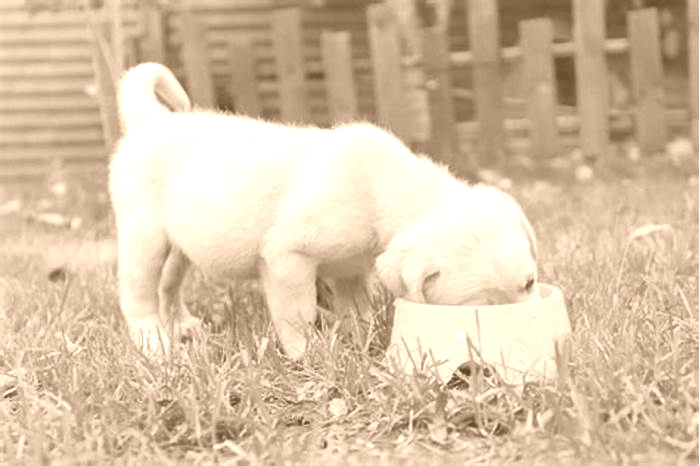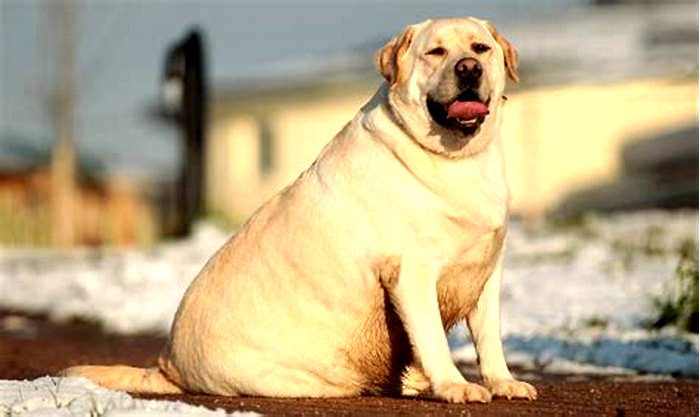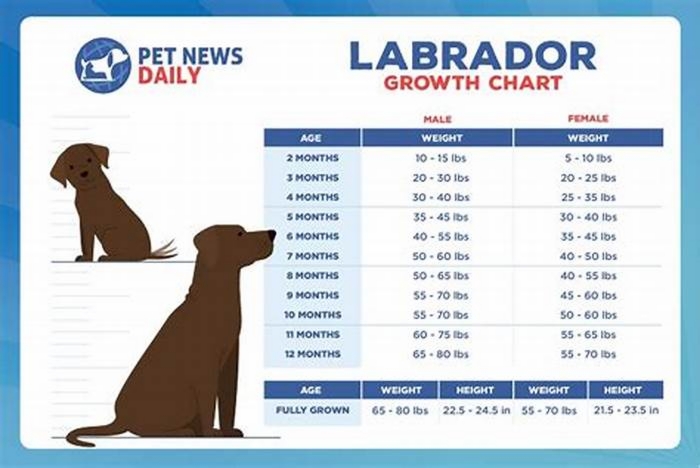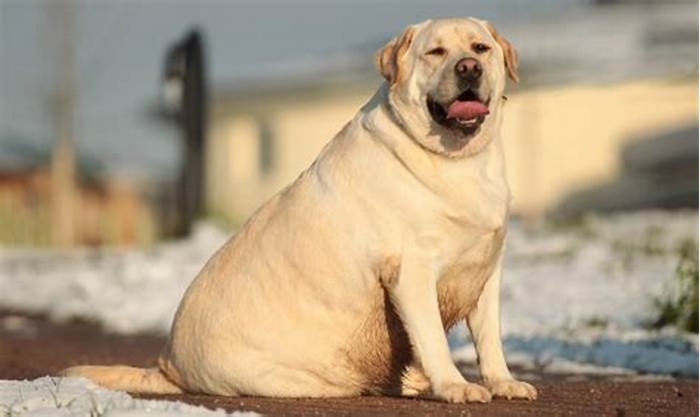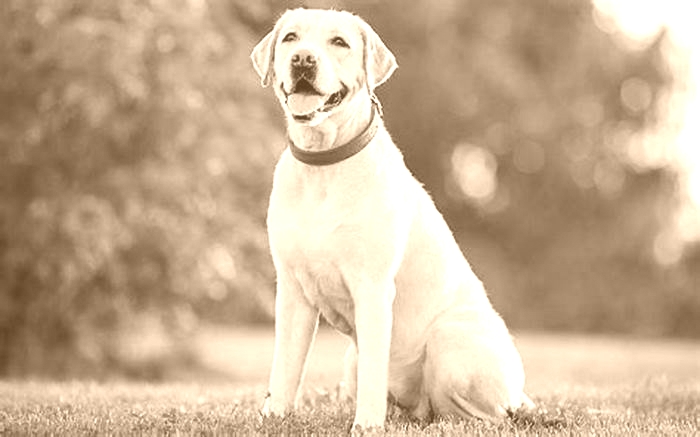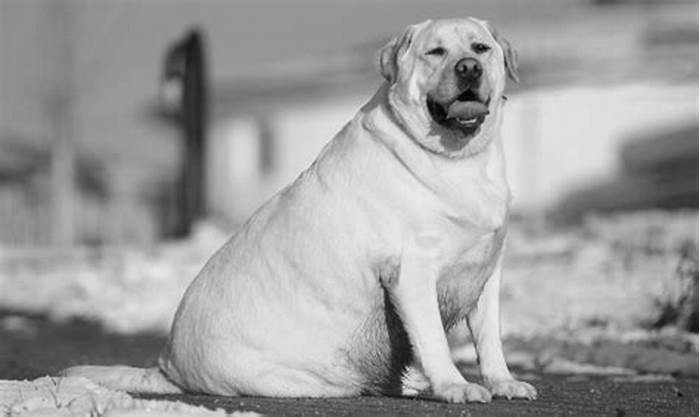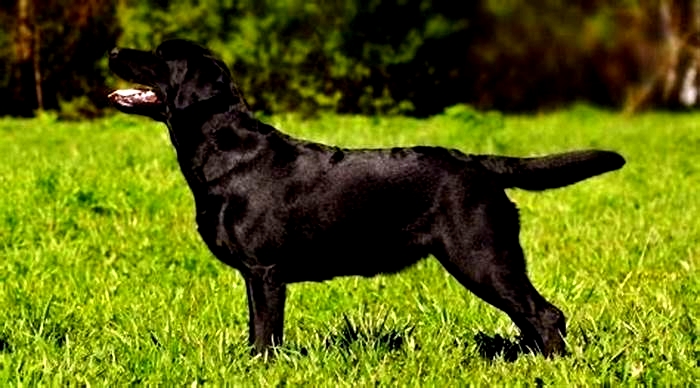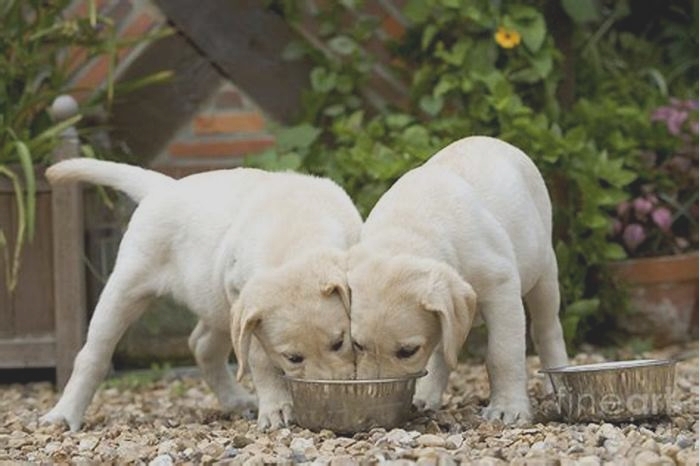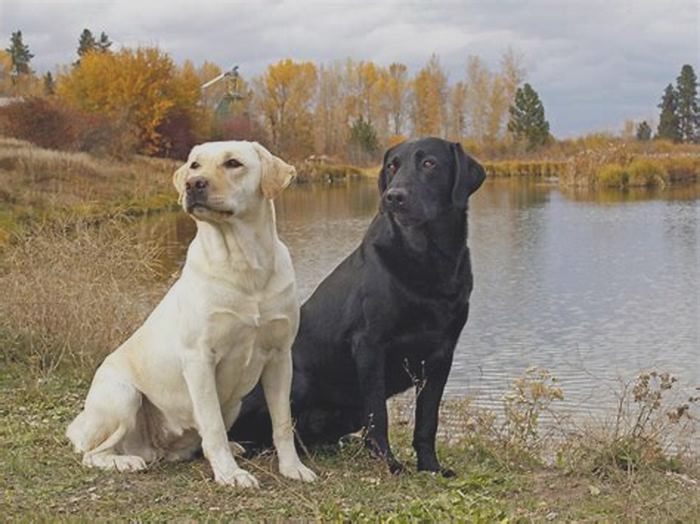Why do Labradors smell
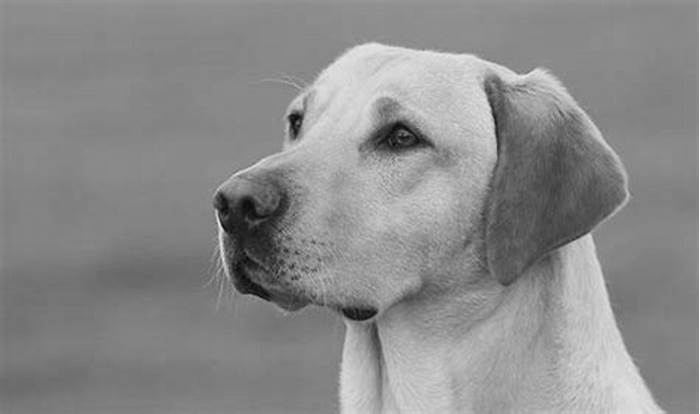
Do Labradors Smell Bad? Find Reasons Why They Stink!

Does your Labrador seem to smell bad no matter how many doggie baths you give them?
Welcome to the club! Labs are fantastic companions with their warm eyes and wagging tails, but their distinctive aroma can sometimes leave you wrinkling your nose.
Heres a spoiler: its not just your Lab all Labradors have a certain smell. The cause can range from their natural body oils to some underlying health issues. But dont worry weve got your back and your nose!
By the end of this article, youll understand why your Labrador smells so bad, and better yet, youll learn how to tackle this stinky dog problem head-on.
So, shall we sniff out the solutions together?
Do Labradors Smell?

Labradors can have a distinctive smell, often described as a doggy odor. It is more noticeable to visitors unfamiliar with dogs. In Labs, it is often more pronounced than in other breeds.
Their thick double-layer coat, which is water-repellent, tends to retain odors longer.
With proper care managing this smell is entirely possible, ensuring your Lab remains a pleasant companion.
Proper grooming is essential in controlling your Labradors smell. The double-layered coat can trap water and scents if not maintained. Regular brushing and timely baths are key to keeping them smelling fresh.
While some owners find the scent of their Labs comforting, others may notice a more pronounced doggy odor. This variability underscores the importance of personalized grooming routines.
Not all smells are unwelcome, and some Labrador owners appreciate the natural scent their pets carry.
Its crucial to distinguish between normal canine aromas and those indicating a health issue. Regular vet check-ups can help identify any underlying problems contributing to bad smells.
Labradors are adventurous, often finding themselves in muddy or wet situations that can exacerbate their natural aroma. Cleaning them after such excursions prevents lingering smells and keeps their coat in good condition.
Natural secretions from a Labradors body, particularly from areas not covered by fur like ears and paw pads, contribute to their overall scent. Attention to these areas during grooming can reduce unpleasant odors.
15 Reasons Why Your Labrador Smells Bad

1) Wet Dog Smell
That unmistakable wet dog smell that greets you when your Lab returns from a rainy adventure or a joyful swim is due to their coat trapping moisture.
This trapped moisture amplifies their natural scent until they are fully dry. Ensuring your Lab is thoroughly dried after getting wet can help minimize this odor.
2) Mouth Odors
Intense or unusual odors emanating from your Labs mouth signal more than just bad breath.
They could be indicators of serious health issues like diabetes or even cancer.
Immediate action is necessary if these odors persist, as they can signify underlying conditions that require medical attention.
3) Skin Problems
A Labradors skin can become a fertile breeding ground for bacteria if it becomes too dry or itchy. This is often due to various conditions that can lead to skin infections, producing bad smells.
Prompt and appropriate treatment is crucial to prevent these infections and the resulting aromas.
4) Ear Infections
The long ear flaps characteristic of Labs can unfortunately lead to infections, which may emit a distinct, corn chip-like aroma. Regular ear checks are essential to identify and prevent these infections early on, avoiding the smelly consequences.
5) Gas Attacks
Unexpected gas from your Lab might seem like just an unpleasant part of pet ownership, but it can also indicate underlying digestive problems. If your Lab is experiencing frequent gas, its worth a visit to the vet to rule out any serious health issues.
6) Anal Sac Issues
Blocked anal glands in your Lab produce a very distinct and unpleasant smell, signaling a need for medical intervention. This condition is uncomfortable for your dog and requires prompt veterinary care to resolve.
In the video below you can see explains and detailed tips from Dr. Lera:
7) Environmental Factors
Active dogs like Labs can easily pick up odors from their environment. Whether its a roll in something smelly in the grass or a dive into a muddy puddle, these adventures can leave them carrying odors until theyre properly cleaned.
8) Illness or Infection
An unusually intense or foul smell emanating from your Lab could be a warning sign of an underlying illness or infection. Keep an eye out for other symptoms and consult with a veterinarian if the scent persists or worsens.
9) Hormonal Changes
Even after spaying or neutering, Labs can produce pheromones detectable by humans. These natural hormonal changes can contribute to their overall scent profile, adding another layer to their unique smell.
In the video below you can see some complications after spaying your dog:
10) Dietary Considerations
The food your Lab eats plays a significant role in their overall scent. Changes in diet can affect their scent, so its important to consult with a veterinarian to ensure their food is not only nutritious but also doesnt contribute to bad smells.
11) Skin Fold Pyoderma
Labs with skin folds are particularly prone to infections if these areas arent kept dry, leading to a musty or sour odor. Regular cleaning and drying of these folds are critical to prevent infection and the associated smells.
12) Impacted Anal Glands
When a Labs anal glands are impacted, they can cause significant discomfort along with a bad smell. This condition often leads to a Lab scooting on the ground, a sign that a vet visit is in order.
13) Gingivitis and Dental Issues
Poor oral hygiene in Labs can lead to tartar buildup, gingivitis, and ultimately, foul breath. Regular dental care, including brushing and professional cleanings, is vital to prevent these odorous issues.
14) Environmental Allergies
Allergies can cause a Labs skin to produce a foul-smelling oil. Identifying and treating these allergies is crucial in managing this issue and preventing the associated bad scents.
In the video below you can see a few ways to minimize allergies at home from Karen Becker:
15) Stress or Anxiety
Stress and anxiety can manifest physically in Labs, including causing changes in their scent. Addressing the root cause of these emotional issues is important for their overall well-being and can help mitigate any related smells.
7 Tips to Make Your Lab Smell Better
1) Regular Bathing Keeps Your Lab Fresh
A clean Lab is a fresh-smelling Lab.
Labrador Retriever typically requires a bath once a month.
Use a dog-friendly shampoo to match your pets skin type. Ensure to rinse thoroughly to avoid shampoo residue that can cause odors. Regular bathing removes dirt and reduces smells, keeping your Labrador Retriever smelling good.
Ready to give your furry friend the spa treatment they deserve? Try Earthbath Oatmeal & Aloe Dog Shampoo today and say goodbye to dry, itchy skin!
Treat your pet to a soothing bath experience with natural ingredients like oatmeal and aloe vera. Experience the difference in their coat and skin softer, cleaner, and fresher than ever before.
Click here to give your pet the ultimate pampering session!
2) Brush Your Labrador
Brushing not only removes loose fur but also spreads natural oils across the coat. This practice minimizes odors and promotes a healthy, shiny coat.
Make brushing a routine part of your Labs care to prevent bad smells and manage shedding effectively.
The Hertzko Self-Cleaning Brush is a lifesaver for pet owners with tangled and knotted fur. It works seamlessly on pets of all sizes and coat types. The combs uniquely crafted bristles navigate through thick fur, effectively removing mats and tangles without causing any discomfort.The brushs clever design includes a bristle retraction button, simplifying clean-up and prepping it for the next use in no time.
3) Take Care of Their Teeth
Bad breath doesnt have to be a norm for your Labrador Retriever. Use a dog toothbrush and toothpaste for daily brushing. Dental treats help too. This care reduces tartar, combats foul breath, and prevents dental diseases. A fresh breath is a sign of good oral hygiene.
4) Ear Care Is Crucial
Ear infections can lead to smelly issues. Keep your Labs ears clean and dry. Not all dogs need frequent ear cleanings, so consult your vet. Proper ear care prevents odor-causing infections and keeps your Labs ears healthy.
5) Grooming Is Key
Routine grooming goes beyond a shiny coat. It includes bathing, ear and nail care, and even dental hygiene. Regular visits to a professional groomer can help manage your Labs smell. They can address issues like anal sac odors. Grooming is essential for your Labs overall well-being and scent.
6) Embrace a Healthy Diet
Your Labs diet affects their smell.
High-quality dog food leads to a healthier, better-smelling pet. Consult your vet for dietary recommendations.
Including raw meats, dog-friendly fruits, and certain herbs can improve your Labs scent. Control portion sizes to prevent overfeeding.
7) Keep Their Bedding Clean
A clean sleeping area is essential. Regularly wash and disinfect your Labs bedding to prevent scents. This practice also minimizes the risk of infections and skin issues.
Clean bedding supports a clean, fresh-smelling Lab. Consider investing in a high-quality bed specifically designed for Labradors to ensure optimal comfort and support for your furry friend.
How to Get Rid of Labrador Smell in Your Home
Grooming Essentials
Grooming goes beyond aesthetics, its crucial for odor control. Engage in regular grooming and remove dead hair to minimize Labrador body scent.
A clean vacuum is pivotal, preventing the spread of odors as you clean. Tackle this task with the right tools and a gentle approach to protect your dogs coat while keeping your home fresh.
Refresh Your Air
Air fresheners and filters can transform the scent of your space. Opt for natural charcoal purifiers or automatic air fresheners to keep the air clean. These solutions absorb and neutralize pet odors, making your home more inviting.
The Power of Cleaning Agents
Utilize diluted white vinegar and baking soda for a deep clean. These natural cleaners effectively neutralize odors that have penetrated fabrics and carpets.
Safe and effective, theyre a go-to for pet owners aiming for a fresh-smelling home.
Commercial Solutions
When choosing commercial scent removers, prioritize dog-safe options. Products designed to neutralize or mask odors can be highly effective, provided theyre non-toxic and safe for areas frequented by your Labrador.
Deep Clean Regularly
Invest time in deep cleaning to combat dog scents. Wash your dogs bedding, replace air filters, and open windows to air out your home.
An air purifier, alongside essential oil diffusers or scented candles, can further aid in maintaining a pleasant scent indoors.
Conclusion
In wrapping up, its clear that while Labs can have a distinct smell, it often boils down to manageable causes like grooming, diet, or health issues. Happy, healthy Lab is a fresher-smelling companion. Regular care and occasional vet checks can make a world of difference. Now, wed love to hear from you! Share your tips or stories about keeping your Labrador smelling great in the comments below. Lets help each other keep our furry friends as delightful to the nose as they are to the heart!
Do Labradors Smell? 7 Things You Can Do About Lab Odor
Do Labradors smell?
If you have a stinky canine companion, you arent alone. Having dogs that stink is a problem shared by many pet owners, and we understand that it can be a very frustrating experience, especially if you are particular about puppy stink.
However, one important thing you should know is that there is a difference between normal Lab smell and potent dog stink that can actually be prevented.
This post will delve further into the topic of do Labradors smell? to help you understand what to do and where to get a home remedy for smelly Labradors.
Do Labrador Retrievers smell bad?
All Labradors smell to some extent, but they are not generally known to be a naturally smelly dog breed.
Nonetheless, Labrador Retrievers are prone to ear infections and skin allergies, which can lead to smelly reactions. This is especially true if you do not fix the problem right away.
For instance, as many of us know, an ear infection can smell very bad. So, while your Lab may not be naturally stinky, they sure are prone to smelling bad.
Why do Labradors smell bad?
Each Labrador Retriever may have different reasons as to why they smell.
Your Lab may be smelly because of one or a mixture of these common causes:
1) Their double coat
Labs boast a beautiful double coat, which is an excellent way to keep dirt and water off of their skin. It also regulates their temperature and keeps them cool in the summer and warm during the winter.
However, the double coat can also work against the Labrador Retriever because it could also be why they are smelly.
Labradors have thick, double coats, so moisture and dirt can get stuck under it.
Consequently, they will need regular brushing and occasional baths to help keep their skin and fur clean.
2) They love water and dirt.
Labrador Retrievers love to play in the water and dirt. In fact, you may quickly find your Lab rolling around in the dirt, mud, puddles, or anything they can get into.
While the double coat of Labrador Retrievers is waterproof for the most part, moisture and dirt can get trapped under all that fur.
Your Labradors double coat can trap organic materials from water and absorb it. While it greatly varies on the water source, the coat can absorb debris like dirt, plant material, fish and animal waste, algae, bacteria, and more.
Hence, if the dirt and moisture settle for more than a few days, the chances are high that your Lab will start to smell really strongly.
3) Skin allergies and infections
Labrador Retrievers are prone to getting skin allergies and infections. These allergies and infections can make your Lab very smelly, especially if you do not address the problem with the help of a certified veterinarian.
Common causes of Lab skin allergies include wheat, chicken, pork, soy, lamb, beef, egg, and dairy.
A skin infection can be caused by underlying skin allergies and other diseases like hormonal disorders.
Of course, certain bacteria can also come in contact with your dogs skin and cause an infection.
4) Ear infections
Like humans, Labradors are prone to ear infections because they have floppy ears. So, bacteria can easily enter and get trapped in your dogs ears.
Ear yeast infections are very common for many Labradors, for instance. Too much moisture in your dogs ear can let yeast and bacteria grow.
Ideally, you should speak to a veterinarian to get the best treatment for your Lab.
A veterinarian will give you an ear cleaning solution or other medication to put into your dogs ear to get rid of the infection.
5) Bad diet
Your Labrador Retriever may also stink because of a bad diet. A bad diet can result in bad breath and increased flatulence.
How do I stop my Labrador from smelling?
1) Regular brushing
Brushing your dogs coat at least once a day for 10-15 minutes can help a lot since it gets rid of excess hair, dirt, and debris trapped under all their fur.
2) Occasional baths
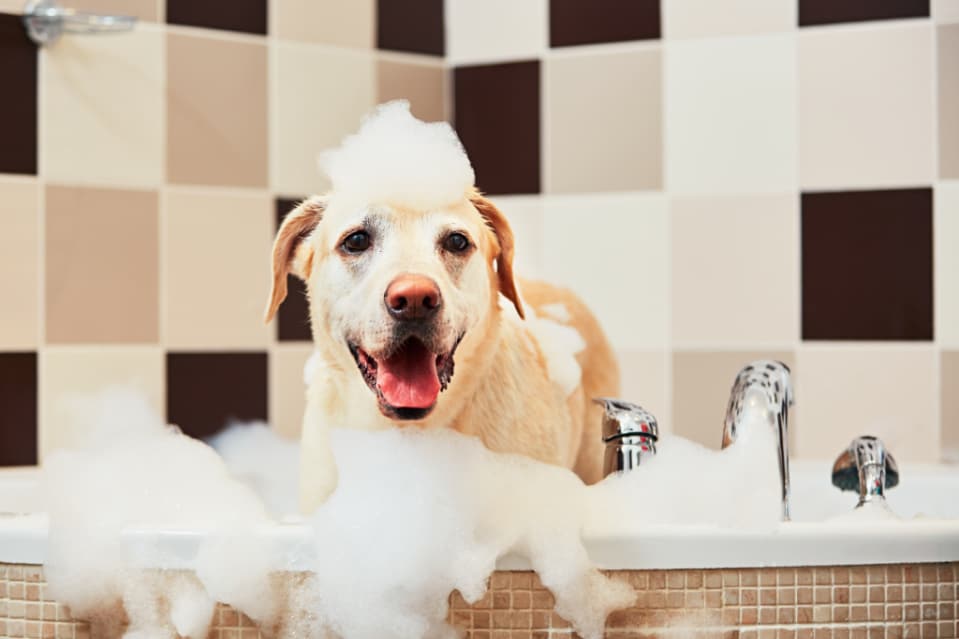
Labradors only have to bathe once a month. Bathing them more than thatunless your veterinarian says they have to because of a skin conditioncan irritate their skin and make them more prone to getting skin irritations.
Some dogs actually take baths every 3-6 months and are perfectly fine.
However, you can only do that if your dog is not dirty. Otherwise, giving your Lab a bath once a month is more than enough.
You should only use medicated shampoos for your dog if your veterinarian prescribed it to you.
Most people agree that oatmeal shampoos are excellent dog shampoos. Organic oatmeal shampoos can help soothe your dogs skin by naturally moisturizing it and relieve them from itchiness.
3) Rinse your dog.
If your dog recently took a proper bath but got dirty from playing outside in the dirt and water, then you can rinse them.
Giving them a quick rinse, making sure it reaches their skin, and using a shower or hose can help remove excess dirt and material. You may also want to use the best shampoo for smelly Labrador.
You can use your hand to shake their coat and rub their skin while you rinse them to make sure there is no leftover dirt.
4) Doggy-safe perfume or deodorizing sprays
Deodorizing sprays and perfume that is safe for dogs can easily help your dog smell better until bath day.
These sprays and perfumes can mask your dogs odor or at least decrease it so you do not overbathe them.
However, keep in mind that these sprays and perfumes are not a replacement for regular baths and rinsing.
If your dog has an ear infection or skin allergy that is causing them to smell bad, it is better to address those problems instead of trying to hide the smell.
5) Cornstarch or baking soda
After your dog gets rinsed or takes a bath, you can sprinkle a little bit of cornstarch or baking soda on their coat while it is still a little damp.
The cornstarch and baking soda absorbs odor, so it can lessen how much they will smell until they play outside again.
However, you want to sprinkle it on their coat very lightly. Too much cornstarch or baking soda can end up caking on their fur.
6) Get them to stop rolling in the dirt
Try training your Labrador to stop rolling in smelly things. For tips to help you keep your Labs mind occupied, you can check out our posts here.
7) Change their diet
As earlier mentioned, your Labrador Retriever may start to smell bad as a result of sticking to a diet that is bad for their health. Hence, it may be time for you to consider changing your Labradors diet.
All in all
Yes, Labradors do smell to some extent.
However, there are measures you can take to keep your Lab clean and fragrance-free.
Take note of the tips above to learn how to keep the stinky odors at bay.

